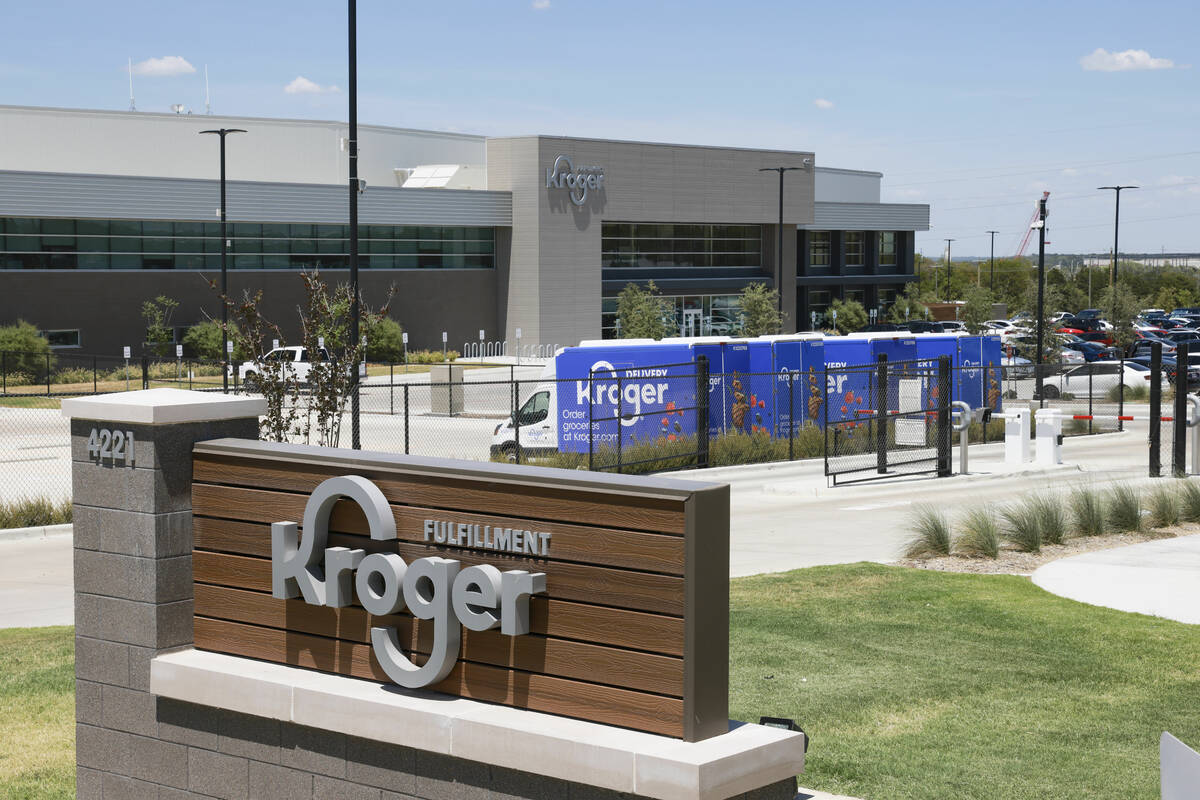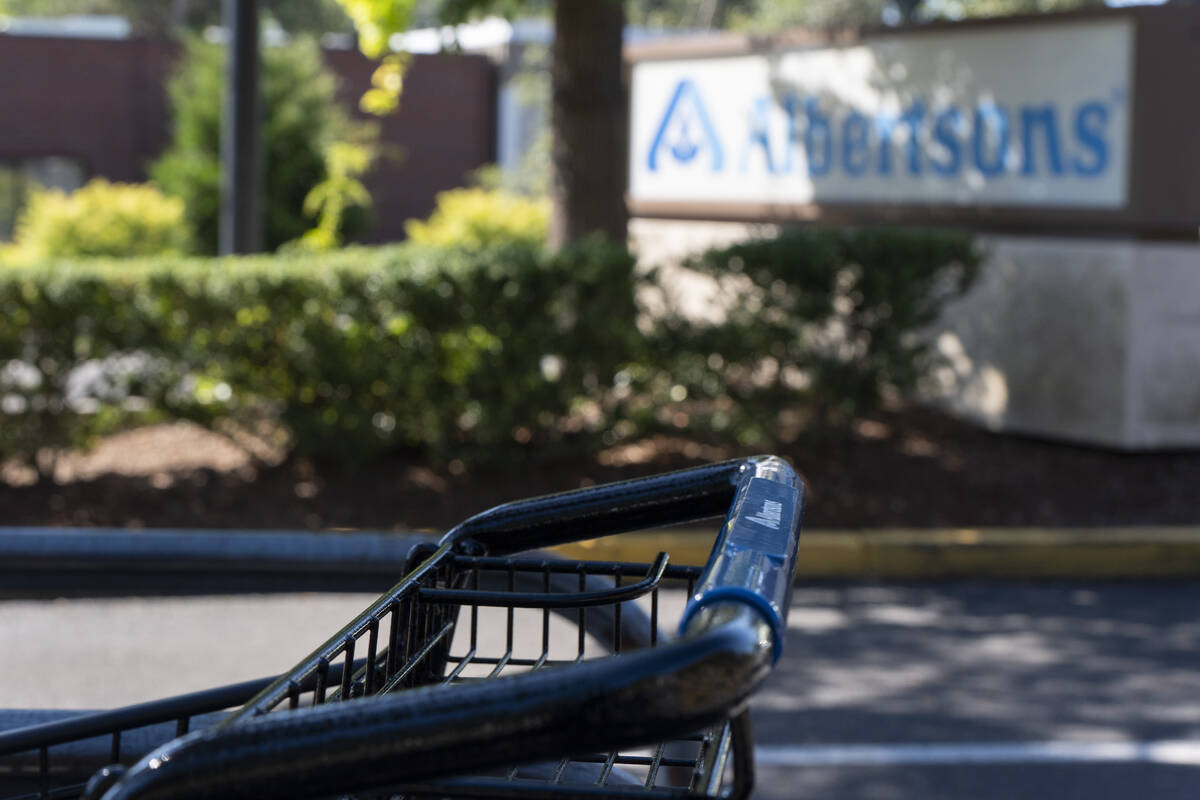Proposed supermarket merger of Kroger and Albertsons halted by federal judge
A federal judge has temporarily halted a proposed merger between supermarket giants Kroger and Albertsons, an action that could scuttle the deal.
U.S. District Court Judge Adrienne Nelson issued the ruling Tuesday after holding a three-week hearing in Portland, Oregon.
Kroger and Albertsons in 2022 proposed what would be the largest grocery store merger in U.S. history. But the Federal Trade Commission sued earlier this year, asking Nelson to block the $24.6 billion deal until an in-house administrative judge at the FTC could consider the merger’s implications.
Nelson agreed to pause the merger.
“Any harms defendants experience as a result of the injunction do not overcome the strong public interest in the enforcement of antitrust law, especially given the difficulty in disentangling a premature merger,” she wrote in her opinion.
Federal regulators argue that combining the two chains would be bad for consumers and workers by eliminating competition. The companies say a merger would help them better compete with big retailers like Walmart, Costco and Amazon.
The case may now move to the FTC, although Kroger and Albertsons have asked a different federal judge to block the in-house proceedings. Colorado and Washington are also trying to halt the merger in ongoing state trials. The judge in Washington was expected to release his opinion later Tuesday.
The FTC argued that Kroger and Albertsons currently compete in 22 states, closely matching each other on price, quality, private label products and services like store pickup. A merger would eliminate that competition and raise prices for already struggling consumers, the government said. The FTC also said the merger would hurt workers since Kroger and Albertsons would no longer compete to hire them.
But Kroger and Albertsons argued their merger would preserve consumer choice by allowing them to better compete against its growing rivals. In its testimony, Albertsons warned Nelson that it might have to lay off workers, close stores and even exit some markets if the merger weren’t allowed to proceed.
Under the merger agreement, Kroger and Albertsons would sell 579 stores, including 16 in Nevada, in places where their locations overlap to C&S Wholesale Grocers, a New Hampshire-based supplier to independent supermarkets that also owns the Grand Union and Piggly Wiggly store brands.
The FTC argued that C&S is ill-prepared to take on the stores and may want the option to sell or close them. But Kroger and Albertsons said C&S has the experience and national scale to handle the divestiture.
Kroger, based in Cincinnati, Ohio, operates 2,800 stores in 35 states, including brands like Ralphs, Smith’s and Harris Teeter. Albertsons, based in Boise, Idaho, operates 2,273 stores in 34 states, including brands like Safeway, Jewel Osco and Shaw’s. Together, the companies employ around 710,000 people.
Nevada AG, Rosen express satisfaction
Nevada Attorney General Aaron D. Ford released a statement after a federal judge halted the merger of grocery store chains Kroger and Albertsons.
“I am very pleased with the judge’s decision today, and I believe this is the first step toward ensuring consumers are protected from increased grocery prices that will place a further burden on the average Nevada’s wallet,” said AG Ford. “We will continue to work with our partners and the FTC to ensure this anti-consumer merger does not go forward.”
In February 2024, Ford, the Federal Trade Commission, and a bipartisan coalition of states, announced the filing of a lawsuit that challenges the proposed merger.
The lawsuit seeks to block the proposed merger, alleging it is in violation of the federal Clayton Act which prohibits the acquisition of assets where the effect of such acquisitions may substantially lessen competition or create a monopoly. Businesses facing less competition have the ability to charge higher prices without providing improvements to the quality of goods.
In the buildup to the lawsuit’s filing, Ford held a series of listening sessions with the community about the proposed merger, with FTC Chair Lina Khan in attendance for several. In addition, Ford’s office took thousands of statements regarding the merger online through a dedicated portal.
In bringing the lawsuit, Ford joined the FTC, as well as the attorneys general of Arizona, California, Illinois, Maryland, New Mexico, Oregon, Wyoming and the District of Columbia.
“The Kroger-Albertsons mega merger would have reduced competition and raised grocery prices at a time when Nevadans are already being squeezed by high costs,” said Nevada Sen. Jacky Rosen. “I’m glad to have helped block this corporate mega-merger and prevent higher costs for hardworking families.”
Earlier this year, she announced that she successfully pushed the FTC to sue to block the Kroger-Albertsons merger that would have reduced competition and further raised grocery prices in the state. She also joined her colleagues in submitting an amicus brief urging the U.S. District Court for the District of Oregon to block the merger. Rosen also sent a letter calling on President Joe Biden to lower grocery costs for Nevadans by holding large corporations accountable.


















